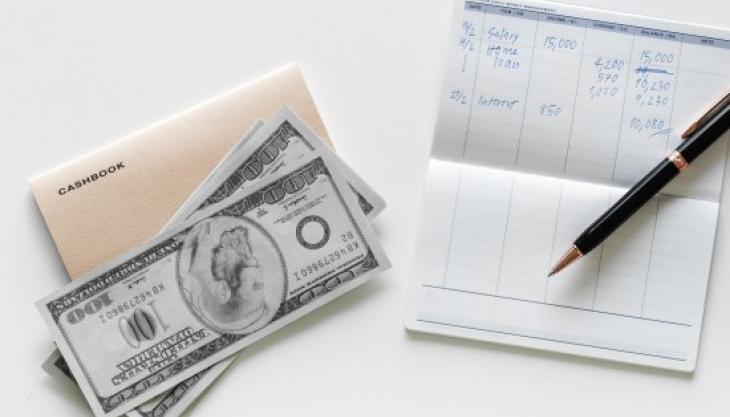Research Shows New Way to Curb Student Loan Default
Submitted by Rachel R on Fri, 11/30/2018 - 8:20am

Is there a better way to avoid student loan default?
Image via Pexels
Student loan default is growing rapidly, and experts say a crisis is looming if the trend doesn’t reverse. Borrowing is on the rise, as is average debt, along with default rates. But research shows a simple tweak in student loan servicing websites could likely end most defaults and help people get and stay on track with their student loans. Here’s a look at what you need to know to avoid a student loan debt crisis in your life.
Default and delinquency
If you miss a student loan payment, you immediately are considered delinquent. That triggers certain collection activities such as phone calls and letters to encourage you to get back on track. There will also be late fees, and interest will start piling on interest because you’re not making payments. It’s not a good situation.
Delinquency turns to default after 270 days of non-payment on your student loans. That’s when things turn bad. Your wages can be garnished, and the government can put a lien on your auto or home, or snag your federal tax refund check. Plus, you can expect to hear from much more aggressive debt collectors.
Default rates on the rise
About one-fourth of recent graduates have fallen into default on their student loans. Exact default rates vary by source because the government makes a practice of publishing confusing statistics. They publicize a “cohort default rate” which is default only of recent graduates. Yet some grads start out fine and then wind up in default.
So, the measurement doesn’t reflect the total population of student loan debtors and their financial problems. What is clear is that default rates are on the rise despite an affordable option – Income-Driven Repayment (IDR). A recent study showed that defaults could likely be greatly diminished by making IDR more apparent as a viable option for which most borrowers qualify.
Research shows small tweak could drop default
A study from the University of Michigan Andrew Young School of Policy Studies identified a problematic aspect of the website StudentLoans dot gov. The “traditional” repayment plan for student loans is the 10-year plan. But that can be unaffordable for many consumers. For a student loan balance of $30,000, payments can be around $300 a month.
For those just starting out, that can be too costly. And if your loans are lingering years after college, you might find that rent, bills, and other costs of living don’t leave room for $300+ in debt payments. But when you are first starting your student loan repayment journey, the default on the website is to the costly repayment option that many borrowers cannot afford.
Why Isn’t IDR Front and Center?
On the current website for those leaving college, the system defaults to enrolling you into the 10-year traditional plan, which is costlier than many other options. You must opt-out of the traditional plan to explore other repayment plans. In an experiment by the University of Michigan, they found simple tweaks to the website encouraged enrollment into the more affordable Income-Driven Repayment.
Roughly two-thirds of participants in the study selected IDR when it was a prominent choice. Study runners claim this could prevent many of the student loan default occurrences. Study authors wrote that the government could “increase uptake of income-driven repayment plans” with a “very easy policy level.”
Other approaches the study tested included simplifying the process by showing just two of the available seven plans, most took the more expensive one when it was set as an opt-out default. The authors also tried to change the name from “standard” to “fixed” to try and discourage the 10-year selection, but that change failed as well. Perhaps this study will encourage change.
If you’re stuck with unaffordable student loans, you can still request a change to a more affordable Income-Driven plan. But sometimes, a more drastic intervention is needed.
To find out if your circumstances may qualify you for bankruptcy relief of student loans, call +1-833-627-0115. Read reviews then contact the Law Offices of John T. Orcutt to schedule a free student loan bankruptcy consultation at one of our locations in Raleigh, Durham, Fayetteville, Wilson, Greensboro or Wilmington.
Debts Hurt! Got debt? Need help? Get started below!
Serving All of North Carolina
- Bankruptcy Attorneys Raleigh NC (North)
- Bankruptcy Attorney Fayetteville NC
- Bankruptcy Attorney Durham NC
- Bankruptcy Attorneys Wilson NC
- Bankruptcy Attorneys Greensboro NC
- Bankruptcy Attorneys Southport NC
- Bankruptcy Attorneys Wilmington NC
Bankruptcy Attorneys Raleigh NC (North)
6616 Six Forks Rd #203 Raleigh, NC 27615 North Carolina
Tel: (919) 847-9750

Bankruptcy Attorney Fayetteville NC
2711 Breezewood Ave Fayetteville, NC 28303 North Carolina
Tel: (910) 323-2972

Bankruptcy Attorney Durham NC
1738 Hillandale Rd Suite D Durham, NC 27705 North Carolina
Tel: (919) 286-1695


Bankruptcy Attorneys Greensboro NC
2100 W Cornwallis Dr. STE O Greensboro, NC 27408 North Carolina
Tel: (336) 542-5993

Bankruptcy Attorneys Southport NC
116 N Howe St. Suite A Southport, NC 28461 North Carolina
Tel: (910) 218-8682

Bankruptcy Attorneys Wilmington NC
116 N. Howe Street, Suite A Southport, NC 28461 North Carolina
Tel: (910) 447-2987
